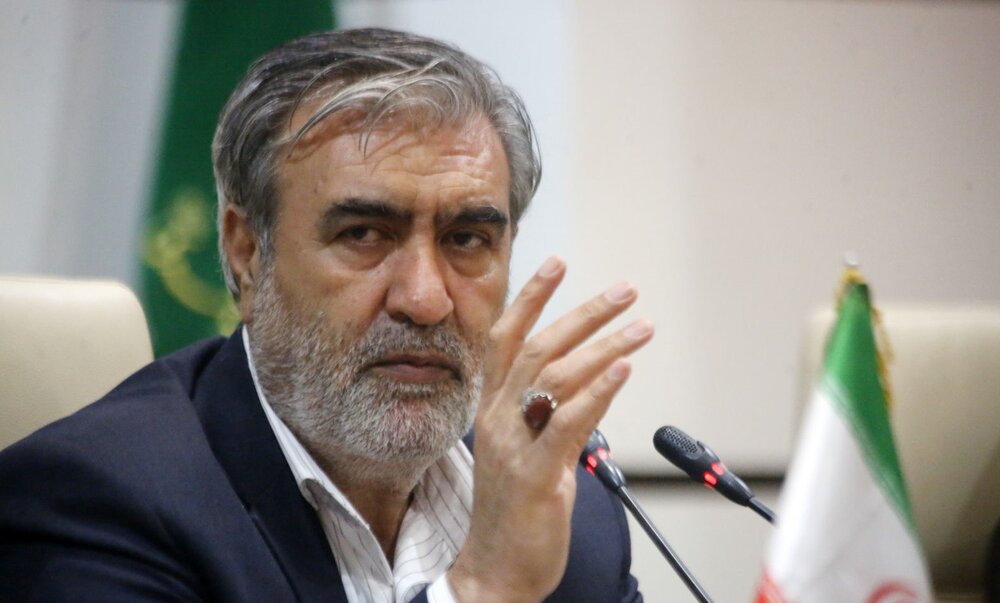Iraqi deployment of border guards should prevent anti-revolutionaries from entering Iran: MP

TEHRAN – A senior Iranian lawmaker has said that Iraq’s decision to deploy troops on the border with Iran and Turkey should lead to preventing counterrevolutionary elements from illegally entering Iran.
The lawmaker, Ebrahim Azizi, who is deputy chairman of the Iranian Parliament’s National Security and Foreign Policy Committee, said Iran’s border interactions with neighboring countries should ultimately lead to maintaining security and stability for both sides.
He was referring to Iraq’s recent decision to deploy thousands of troops on the border with Iran and Turkey.
“Certainly, the Islamic Republic evaluates the product of the actions of the neighboring countries in preventing the entry of affiliated, rejected and counter-revolutionary currents and groups into Iran,” Azizi told the Islamic Consultative Assembly News Agency (ICANA).
He added, “If the deployment of a force of 6,000 people leads to the fact that counter-revolutionary elements do not enter our country, in the sense that the Islamic Republic of Iran's wish is fulfilled, naturally we will cooperate more with our neighbors in this regard.”
He continued, “Otherwise, if we witness the illegal movements of the elements of Komala, Democrats and affiliated parties, we reserve the right to target these elements wherever they are and to support the borders and security of our country's people in any way possible.”
Azizi said, “However, we welcome the approach of the neighboring governments in trying to ensure security, and we are ready to cooperate for more interactions, but the outcome of these actions is important and decisive.”
The lawmaker said some countries in the past have not exerted control over their borders. “This issue caused the elements of the dissolved Democratic and Komala groups to come to the country and unfortunately, the transfer of weapons from the northwestern borders of the country took place on a large scale. These movements have had an impact on our internal security,” he said.
Azizi pointed to the pause in Iran’s operations against the counterrevolutionary elements, saying, “The cessation of our deterring operations will be until we see the absence of movement of anti-revolutionary elements from neighboring countries.”
Ahmad Hossein Fallahi, another lawmaker, has recently pointed to Iraq’s decision to deploy 6,000 troops to the border with Iran and Turkey. “If security is not provided by the neighbors, our country will take action on its own, which will definitely cause border tensions,” he said.
Fallahi was commenting on recent remarks by Iraqi Interior Minister Abdul Amir al-Shimmari, who had announced that Iraq has taken measures to bring under control the country’s borders with Iran and Turkey. “The Iraqi border is a red line, and there will be no dereliction in controlling them,” al-Shimmari told Al Arabiya.
He added, “There was a decision to control the borders with Iran and Turkey and to take measures to control these borders... Amounts of money have been allocated for maintaining the borders with Turkey, building outposts, installing cameras and building towers.”
Al-Shimmari revealed that more than 6,000 policemen are present at the border posts with Iran and Turkey in the Kurdistan region of Iraq.
MP Fallahi said since past few years, Iran has had extensive cooperation to ensure the security of Iraq and it has given many martyrs in this way.
“Currently, we have reached a time when the Iraqi government has reached stability and has an army that should be able to control its borders.”
He went on to express regret that the border of the Kurdistan Region towards Iran has become a route for the entry of weapons and movement of anti-revolutionary elements.
According to the recent memorandums with the Iraqi government, a brigade should have been deployed on the Iranian border and a brigade on the Turkish border to ensure border security, which has been done.
Fallahi continued by emphasizing that if the Iraqis control their border, “our costs” in providing security will also decrease and this is a two-way issue.
“The borders of our country and Iraq are long, and to ensure security, cooperation and participation of both sides is required, because no border point should remain unmonitored,” he insisted.
Fallahi pointed out that it should be noted that securing the border is not a voluntary action by Iraq, but is part of their duties.
Leave a Comment